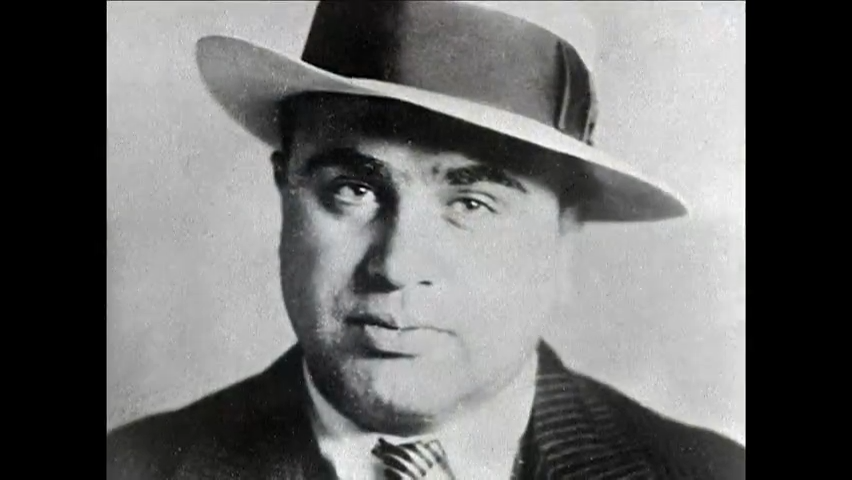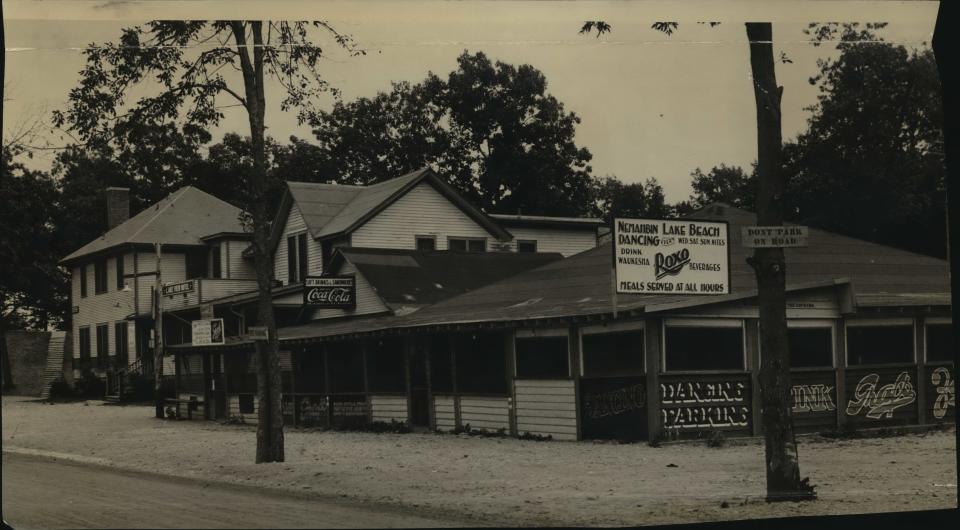A new public TV documentary reveals Al Capone's happy place: Wisconsin

Al Capone — Cheesehead?
A new Milwaukee PBS documentary makes the case that, while the legendary Chicago mobster wasn't from Wisconsin, he used the state as a refuge more often than you might have guessed.
"Al Capone: Prohibition & Wisconsin" will premiere at 8 and 9:30 p.m. Jan. 29 on WMVS-TV (Channel 10). The 30-minute production explores some of the places and people in the Badger State that Capone embraced, from the Northwoods to Brookfield — and one place where his minions gunned down one of his foes.
“I don’t think people realize how big a part (of Capone's life) was … in Wisconsin,” producer Traci Neuman said.
Neuman and director Brian Ewig had been researching Prohibition and its impact on Milwaukee and Wisconsin for a series of digital programs on Milwaukee PBS' website (a half-dozen of the short programs are online at milwaukeepbs.org/prohibition). Again, and again, they'd hear stories about Capone.
“Everybody seemed to have a story about Capone and for us, it was trying to sort out the fact vs. the fiction,” Neuman said.
Among the people they interviewed: Diane Capone, his oldest living granddaughter, who published a book about her grandfather in 2019.
“Even his granddaughter didn’t have any idea how much time he spent in Wisconsin,” Neuman said.
Al Capone making friends in the Northwoods
What really convinced them they had a story to tell, Ewig said, was finding letters at the Manitowish Waters Historical Society that documented Capone's efforts in the late 1920s — not long before he was sent to federal prison for tax evasion and other charges — to buy land near Winchester in Vilas County. The letters, sent to local real estate agent Bill Sell, revealed a friendship with no traces of the gangster behind the St. Valentine's Day massacre.
In another local connection, the documentary shows, the property Capone was trying to buy near Winchester in 1929 was owned by the Trostel family, who owned one of Milwaukee's largest tannery operations at the time.
Capone also owned a place in Courderay in Sawyer County and helped support a massive moonshine operation in the Northwoods. His brother Ralph later bought his own place in Mercer, and operated a tavern and hotel in the Iron County community for 40 years; after Al got out of Alcatraz, he often came up to Mercer to visit Ralph.
“It would make sense that this would be of a safe haven, as opposed to Chicago,” Neuman said.
Capone's doings in the state weren't limited to Up North. He had a house on Brookfield Road in Brookfield that appeared to serve as a stopping point between Chicago's south side and northern Wisconsin. (The documentary features the latest owner giving a tour, including the remnants of a tunnel that led to a barn for quick getaways.)
“By all accounts, the Brookfield home had quite a lot of activity from the Chicago syndicate," Ewig said.
A killing in Waukesha County
For the most part, "Capone: Prohibition & Wisconsin" paints a different portrait from the one we know from movies and television of the man who was dubbed Public Enemy No. 1: playful, good-natured, generous, human.
But the production doesn't shy away from the more familiar side of the man regarded as the leader of the Chicago Outfit, the Windy City's dominant criminal operation, who often eliminated competition by, well, eliminating competition.
Using re-enactments, Ewig recreates the killing of Jack Zuta, a former lieutenant in the operation of Capone's Chicagoland rival, George "Bugs" Moran. In 1930, Zuta was hiding out — he'd been accused of the murder of Chicago journalist Jake Lingle, a friend of Capone's — at Lake View Hotel on Upper Nemanbin Lake in western Waukesha County, when an execution squad showed up and riddled him with machine gun bullets in front of the frightened resort crowd.

Where you can watch 'Al Capone: Prohibition & Wisconsin'
The documentary "Al Capone: Prohibition & Wisconsin" is airing at 8 and 9:30 p.m. Jan. 29 on WMVS-TV (Channel 10), with multiple repeats on the Milwaukee PBS station during the rest of the week. See milwaukeepbs.org for additional listings.
This article originally appeared on Milwaukee Journal Sentinel: A new public TV documentary reveals Al Capone's happy place: Wisconsin

